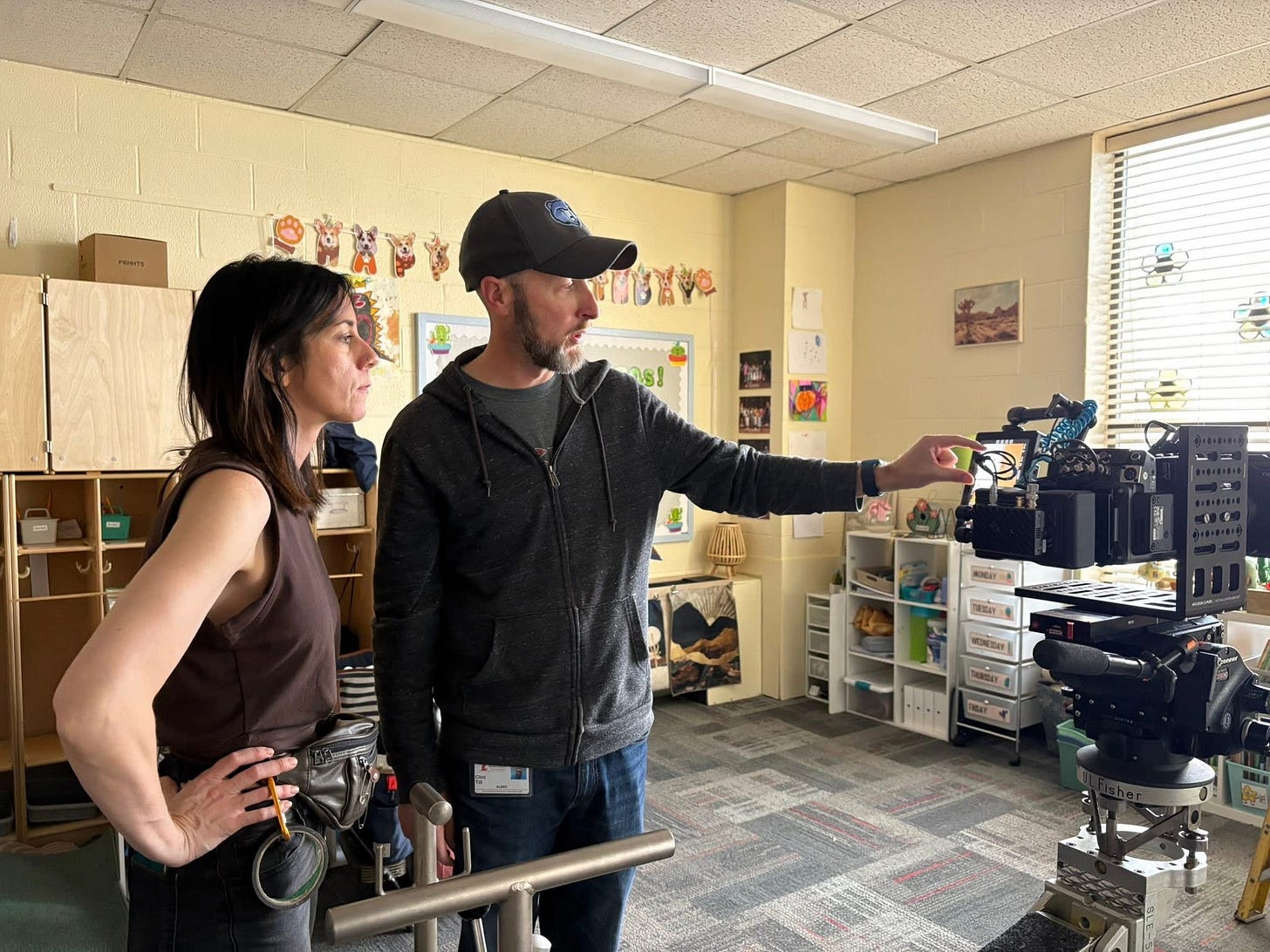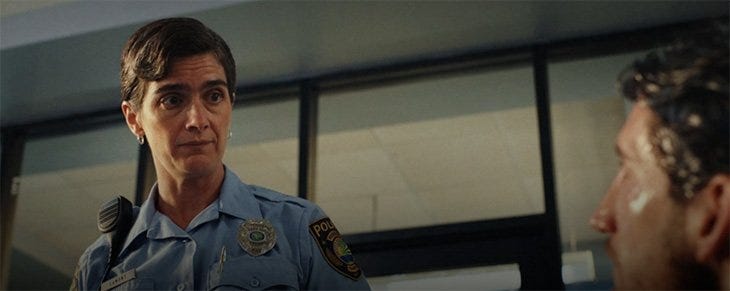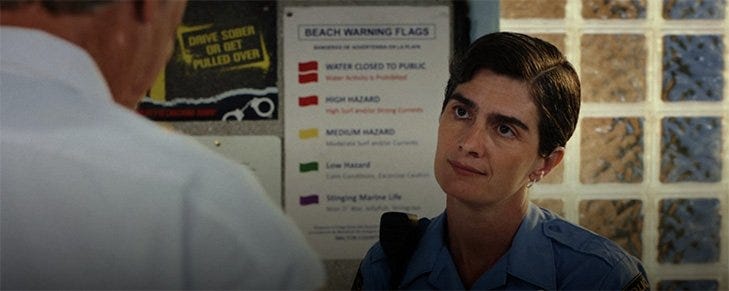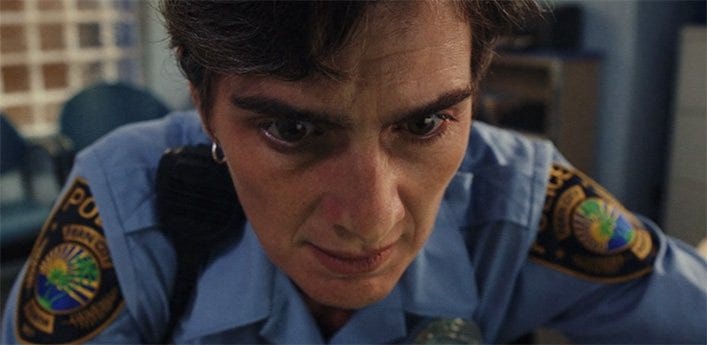Now THIS is how you do it.
Here's a great example to follow.
Imposter syndrome.
For a long time I didn’t know that I what I was feeling on a fairly regular basis actually had a label. All I knew is that part of me never felt good enough when compared to others in the video/film production industry.
I always felt like I needed to learn more.
Which is why I continue to see myself as a perpetual student — asking questions, experimenting, refining. I think it’s an important trait to have. You never want to be the guy in the room that thinks he knows everything and believes there is no room left for growth.
But that same quality can also be a hindrance. It can lead to thoughts like:
Why should anyone care anything about what I have to say?
I’ll never be good enough to do “x.”
Why even try? I won’t be able to pull it off.
If you like my work here, why not consider helping me keep my Internet connection active? That way, I can continue to deliver good stuff straight to your inbox.
Just this past February while screening my latest film at a festival, I was asked to participate on a panel about sound in film. And my first thought was,
I’m not qualified! Nothing I say could be helpful for anyone in the audience.
Turns out, I was wrong.
It was an incredibly fun experience and I could tell the things I contributed to the panel resonated with several who were listening.
So I’m still trying to work through those feelings of inadequacy. But even when I one day grow to fully accept the fact that I can offer something to the world around me, I will still be looking for ways to get better.
Which is where the TV show Poker Face comes in.
Poker Face is an incredibly fun, episodic series from writer/director Rian Johnson, streaming on Peacock. In the same vein as TV classics like Columbo, the show follows main character Charlie Cale who has an uncanny ability to detect when someone is lying. On the run from the mob, Charlie moves from town to town and has the incredible misfortune of getting caught up in a murder plot every single week.
Season 2 premiered in early May and in watching episode 4, The Taste of Human Blood, I was immediately struck by how the director instantly conveyed important expositional information about a character’s emotional and mental state solely by the use of lenses and camera placement.
At the beginning of the episode, we are introduced to Fran Lamont, an outstanding police officer who has the respect of her superiors and those living in the community in which she serves. When we first see Fran, she’s arresting a breaking-and-entering suspect. She then brings him back to the station and offers the down-on-his-luck individual a little life advice. Throughout these opening scenes, the director chooses pretty standard coverage. Fran’s hair is combed back into a neat pony tail. She’s all business. The focal length is pretty standard (it looks pretty close to a 50mm lens). The camera placement is right around eye level.
Next, Fran’s chief approaches her with the news that she’s been nominated as Officer of the Year. Fran is reluctant to accept the nomination and attend the awards ceremony. She doesn’t put much stock into awards. Her satisfaction comes from a job well done. However, her Chief convinces her and on the night of the awards, Fran loses to another officer, Joseph "Gator Joe" Pilson. She smiles graciously, applauds the winner, while saying to herself, “Good for him.”
Then the camera cuts to a full screen graphic that reads “6 years and 6 Gator Joe wins later…”
And then we immediately see this shot of Officer Lamont:
Everything you need to know about her state of mind after losing six years straight is immediately obvious in this one shot.
Notice the use of a wide angle lens here, rather than a more conventional 50mm
Notice how close the camera is to her face
Notice how we are just slightly above eye level, looking down on her
There are other elements to this scene (other than the camera placement and lens choice) that give us further clues about the character:
Although not readily obvious in this frame grab, Officer Fran’s hair is looser, more disheveled in this scene, a distinct departure from the tight pony tail we saw when first introduced to her.
And of course the performance by actor Gaby Hoffmann is on point here. She communicates so much through her eyes.
Less experienced filmmakers would handle this sort of exposition through dialogue; maybe two cops walking down the hall together, gossiping:
OFFICER #1: You going to the Officer Of The Year awards Saturday night?
OFFICER #2: Sure, why not? Free food. Free booze. Always a good night. Hey, have you seen Fran lately?
OFFICER #1: Man, is she wound tight.
OFFICER #2: She’s obsessed. Can’t stand the thought of losing to Gator Joe seven years in a row.
OFFICER #1: She’s losing it. I’ve never seen someone so caught up in these awards.
Feel the difference?
Instead of clunky dialogue where two characters spoon-feed exposition to the audience, the director chose to concisely and creatively communicate exposition and emotion entirely through the visuals by carefully considering lens choice and camera placement.
We should all strive to follow that example.
This one is for all the perpetual students out there.







Great stuff. I need to watch Poker Face!